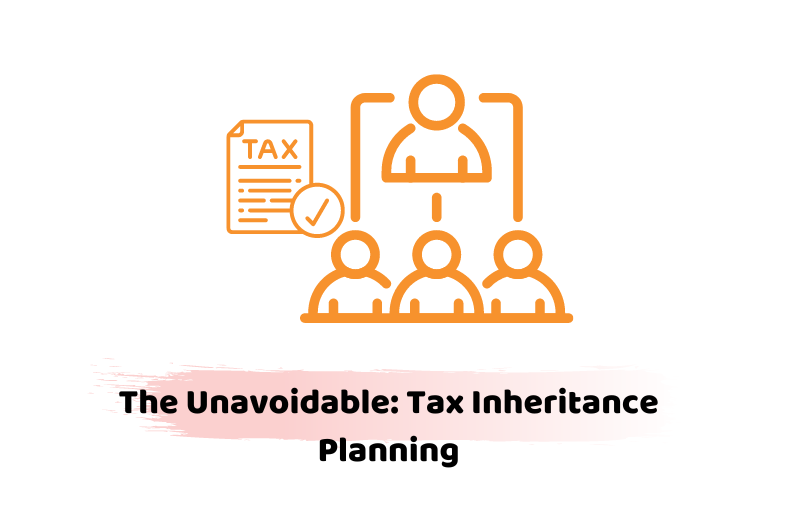Often people say the only sure things in life are known to be tax and death. Here comes the discussion of tax inheritance planning also. It is a unique kind of tax that is paid after your death and it applies to your wealth. In some cases, it applies to a few gifts you give during your lifetime. It has been observed that the slip of inheritance tax has been increasing since the year 2009. The very first drop-down was observed after ten years in the tax year 2019-20. According to HMRC, this drop-down was because of the introduction of the Residence Nil Rate Band (RNRB).
Moreover, it is important to realise how imperative it is to plan for inheritance and consider the bills because there are chances of huge amounts to be paid as inheritance tax bills if you fail to plan accordingly in your lifetime. This will result in leaving a little amount of money for your partner or family members. Further in the discussion of this guide, we will have an understanding of the rules of inheritance tax, how to transfer the allowances, the importance of inheritance tax planning, and the bigger picture related to this.
Reach out to our young, clever, tech-driven team members to learn more tips about tax inheritance planning.
The Rules of Inheritance Tax after You Die
People normally consider that inheritance tax planning is only effective in the case of wealthy people who have a lot of wealth in form of properties and others. However, that is not the case at all, due to the rising property pricing it has become an integral part of planning for almost everyone. Inheritance tax refers to a kind of tax that is paid on your wealth after your demise.
As per the rules of IHT, it applies to some of the elite gifts during your lifetime as well. The case is not always for the inevitable scenarios. You are suggested to get help from an expert because that will help to reduce your inheritance tax bill and explore more helpful options professionally. Some of the rules that you must know include the following:
- If you leave everything in the name of your civil partner or your spouse, there will be no implication of an inheritance tax bill on your wealth after you die.
- If the value of your wealth crosses a certain limit then your family has to pay the tax and the amount of tax bill deeds on the value of your wealth.
- The tax implication is equally liable for furniture, cars, possessional like jewellery, life insurance payouts, property, the value of the investment, and cash.
- The case of pension amount comes under no obligation of inheritance tax bills.
- Be aware of the residential nil-rate allowance in case you leave your property for your children and grandchildren.
Inheritances Tax Reliefs and Transferring Your Allowances
It is known that the real potential for planning for inheritance tax revolves around the rules of IHT reliefs. This is related to the transfer of allowances as well. It is allowed for the civil partners and spouses to transfer the amount of IHT allowances that is still unused to the name of the first person’s death in a relationship of marriage or civil partnership. An effective way of planning for inheritance tax and transferring allowances will allow a couple to enjoy the benefits of tax-free estate worth.
Tax Inheritance Planning – The Exempt
Another popular and simple way to reduce the inheritance tax bills after your death is to gift within the period of your life span. This will help to reduce the value of your estate. However, some of the gifts that you have given in your lifetime can be considered for charging tax, so do not get confused that all such gifts are a way to exempt the tax and will be dealt with as IHT exempt later. Some of the IHT reliefs are also available for businesses, woodland, and farms. You are suggested to get yourself tailored expert advice to make the most benefits from such allowances.
The Broader Picture of IHT
On a broader spectrum, estate planning should never be done only for the reason of inheritance tax. On the other hand, if you think that it is just for the wealthy people who have a lot of property, you are wrong here as well. In the case you fail to plan for your inheritance tax, you are already on the way to making your heirs pay thousands of pounds as inheritance tax bills. You can always be professional in dealing and getting an estimate of how to go about the process and keep your heirs away from paying tax over-payments needlessly.
The Bottom Line
Now that you have gathered a fair amount of information about tax inheritance planning, we can say that there is no certainty of this life you are given, however, the tax bill is still certain even after your death. So it is wise to plan for it to keep your heirs protected from the huge amount of tax bills. This will only be possible if you do estate planning during your lifetime. If you are still confused about the process and how to do it professionally, the best is to look for an expert’s suggestion according to your unique circumstances. We hope these few minutes of reading will help you to develop a better understanding and you will be able to deal with estate planning and inheritance tax bills in a professional way.
Get in touch with one of our experts if you are stuck with your tax inheritance planning. We will ensure to provide instant help.
Disclaimer: The information about tax inheritance planning provided in this blog includes text and graphics in general. This does not intend to disregard any of the professional advice.





















































